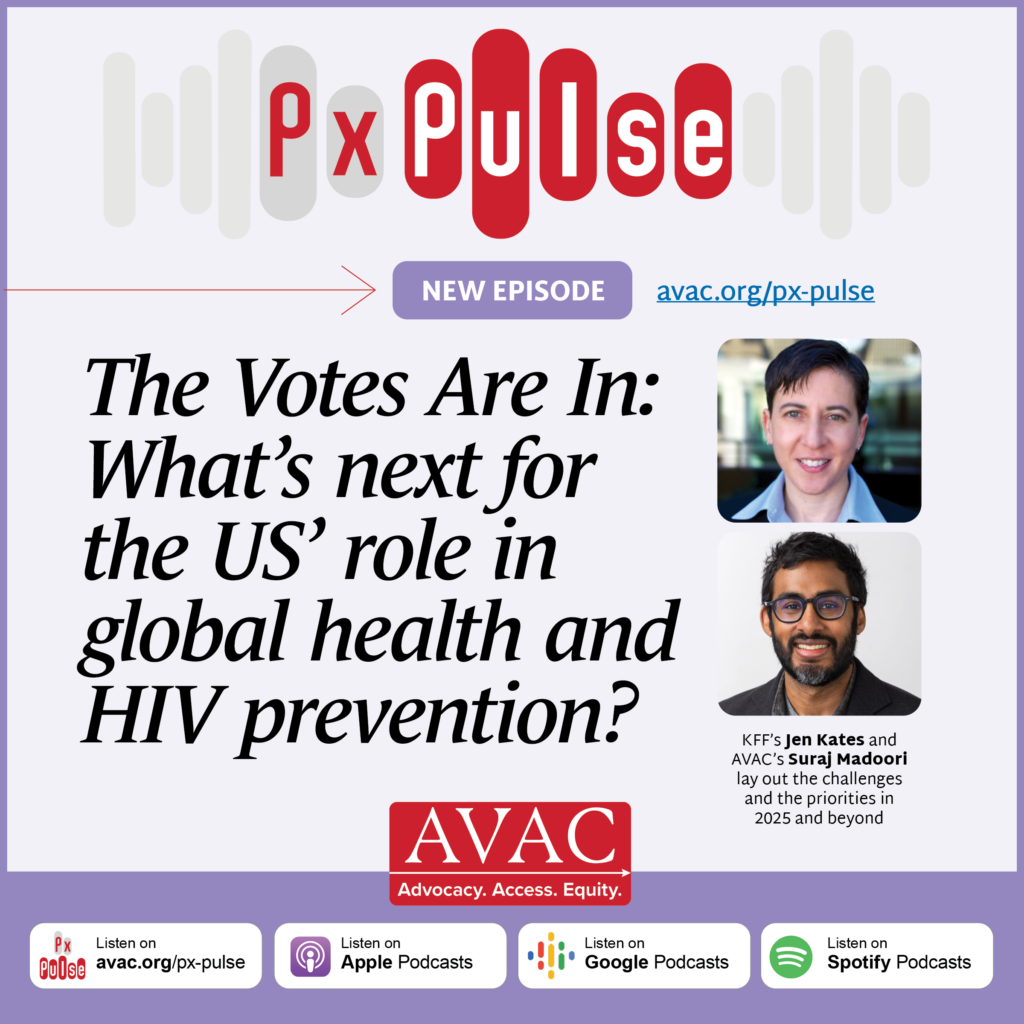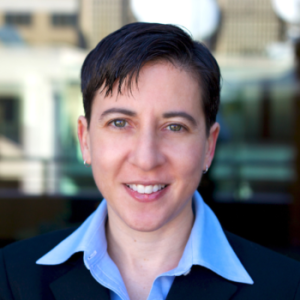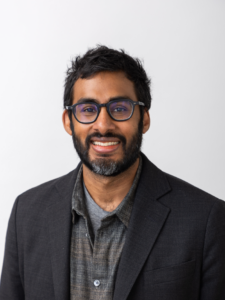The last week has brought an alarming series of developments affecting global health and human rights. Here’s a brief overview of critical changes and their implications:
- Pause on PEPFAR and humanitarian programs: On Monday, US officials announced a suspension of all PEPFAR programs, threatening access to lifesaving HIV treatment and prevention for millions worldwide and jeopardizing decades of progress in global health. US officials were told to stop providing technical assistance to national ministries of health and PEPFAR’s data and computer systems were taken offline. On Tuesday, Secretary of State, Marco Rubio, a longtime supporter of PEPFAR, approved an “Emergency Humanitarian Waiver”, allowing “life-saving medications” to continue to be delivered. However, official guidance on how to interpret the waiver is lacking and it’s unclear whether providing HIV treatment can resume.
IMPLICATIONS: More than 20 million people living with HIV could lose access to treatment, with widespread job losses expected across multiple countries. Most urgently, the delivery of ARVs funded by PEPFAR has already been disrupted. According to an analysis from amfAR, 222,333 people start new ARVs daily, meaning that many individuals now face the life-threatening possibility of interrupted treatment. Beyond these immediate impacts, the broader cessation of ARVs for over 20 million people would have catastrophic consequences.
Learn more from amfAR’s Country Analysis on treatment, testing and other social determinants of health. - Federal financial freeze: Also on Monday, the new administration issued (via the Office of Management and Budget, OMB) a freeze on federal financial assistance, which impacts funding for research, healthcare, diversity programs, and energy projects among other efforts. Democrats are arguing that the freeze is unlawful and would harm communities across the US. Some states are pursuing lawsuits. Due to substantial community backlash and legal challenges, the administration rescinded the memo in less than 24 hours. The administration meanwhile asserts the Executive Order is still in effect
IMPLICATIONS: The President’s pause on foreign assistance at the State Department remains in effect. Most international health and humanitarian efforts remain frozen, except for those covered by the waiver for “life-saving medications” referenced above. Even as the status of these federal funding freezes are still being clarified, the administration can be expected to continue to pursue strategies to impound, rescind, and limit access to federal funding for public health research and programs, and use misinformation and rhetoric to justify these actions.
Listen to Mitchell Warren on the Bhekisisa podcast, Weaponising aid: The cruel ways of #Trump2025. - USAID leadership shake-ups: The new administration has placed career USAID officials on administrative leave, including leaders who run USAID’s Bureau for Global Health, impeding HIV prevention and civil society support worldwide. In addition, many of the agency’s institutional support contractors (ISCs), who comprise more than 50% of the Global Health Bureau, have already been, or are expected to be, let go. Contractors at the State Department Bureau of Global Health Security and Diplomacy (GHSD), including PEPFAR, were also laid-off Wednesday.
IMPLICATIONS: This signals a deliberate effort by the administration to remove anyone seen as disloyal. Reports of loyalty tests for staff, including inquiries about their “moment of MAGA revelation,” reflect a broad-reaching plan to remove anyone or anything that could scrutinize the administration’s orders. Contractors at USAID and GHSD are essential to the Bureau’s operations, and their expulsion paralyzes the USAID, GHSD and PEPFAR. - Emerging threat as Uganda confirms new Ebola outbreak: Uganda’s Ministry of Health confirmed a new outbreak of the Ebola virus in its capital, Kampala. One death has been reported on Wednesday. This is the first outbreak since 2022, when it took four months to contain the spread of the virus.
IMPLICATIONS: The US intent to withdraw from the WHO and the suspension of communication with the US CDC, the country’s lead government agency, makes it impossible for infectious disease control to coordinate with their international counterpart to mitigate this threat. - National Institutes of Health employees may move to schedule F: In a publicly shared memo, employees of the National Institutes of Health (NIH) may be reclassified as “schedule F”, which strips them of key worker protections as civil servants. This move could allow the administration to dismiss or vet career employees and scientists based on their perceived loyalty to the administration’s political and ideological positions, including the research they oversee.
IMPLICATIONS: This shift could have a chilling effect on new researchers entering the field, potentially undermining the integrity and independence of scientific research. - NIH clinical trials and participant travel continues with uncertainty: Despite NIH restrictions, clinical trials and participant travel to trial sites may still continue, according to an email to staff at the NIH from its Acting Director, Matthew Memoli. Scientists may also discuss ongoing research that was initiated before January 20, given there is no data sharing or public communication outside of those who are part of the research or its funding, leaving the impact on new research uncertain.
IMPLICATIONS: Critical purchases and contracts related to human and animal health, security, and biosafety could proceed, but there are many unanswered questions, especially over the pause in grant reviews and funding decisions. - Fighting the Global Gag Rule: One of the early actions of the new administration was the Executive Order to reinstate the Global Gag Rule. However, the Global Health, Empowerment, and Rights Act, a bill to permanently end the Global Gag Rule, was reintroduced in the House and Senate on January 28, making this Act all the more important. AVAC and partners have endorsed the act. Read Congresswoman Lois Frankel’s statement here and watch this space for further updates.
- Confirmation Hearings for Russell Vought, nominee for Director of Office of Budget and Management: Russell Vought may be selected to lead the Office of Management and Budget (OMB), an influential office, which plays a key role in developing the annual budget request. In this position, Vought will essentially serve as a key gatekeeper, shaping the Executive Branch’s agenda. Confirmation hearings were scheduled for January 30. However, Democratic senators are demanding the vote be delayed, while debate escalates around federal domestic funding freeze.
IMPLICATIONS: Vought, one of the authors of Project 2025, the conservative blueprint for reshaping the US government, is poised to implement the vision at the highest levels of government. If confirmed, he will have power over foreign assistance, research, and all the programs that save lives in the US and abroad. He will be able to accelerate firings, work stoppages, and withhold federal grants/funds already underway. His leadership represents a direct threat to public health and human rights.
Live in the US? Call your Senator (202) 224-3121 to vote “no” on this confirmation and send a message to Washington that HIV prevention advocates stand firmly against Project 2025 and its writers.

In Case You Missed It
AVAC and PrEP4All urged donors at last week’s FCAA Summit to mobilize emergency funding and unite against these threats.Together, we can protect global health and human rights.
What we’re reading
- Vox: Researchers are terrified of Trump’s freeze on science. The rest of us should be, too: Discusses the recent public communications ban of the National Institutes of Health, the CDC and other agencies, which has led to canceled meetings, rescinded grants, and travel bans, which has frozen federal grant reviews and raising concerns about the future of public health and scientific research.
- The New Yorker: Behind the Chaotic Attempt to Freeze Federal Assistance: Discusses the new administration’s attempt to freeze federal assistance, which led to widespread confusion and concern among federal agencies and aid organizations, highlighting the challenges and potential consequences of such a sudden policy shift. Discusses the new administration’s attempt to freeze federal assistance, which led to widespread confusion and concern among federal agencies and aid organizations, highlighting the challenges and potential consequences of such a sudden policy shift.
- Brownstone Institute: The State of Pandemic Preparedness, the WHO, and the US Withdrawal: Discusses the Executive Order withdrawing the United States from the World Health Organization (WHO) and ceasing negotiations on the WHO Pandemic Agreement and International Health Regulations, highlighting concerns about the potential impact on global pandemic preparedness.
- TIME: Deborah Birx, Who Oversaw PEPFAR, Is Not Surprised at Its Precarious State: Interviews Deborah Birx, who headed up PEPFAR from 2005 to 2014 and served in the first Trump Administration as an adviser on pandemic procedures who discusses the impact of decisions on the PEPFAR program.
- Project Syndicate: Trump at Davos: Reviews the new presidential policies in a world of competing crises, eroding institutions, and increasing geopolitical instability and how these actions are accelerating these challenges. and how these actions are accelerating these challenges.
- WHO statement on potential global threat to people living with HIV: Warns of the impact of the US funding pause on HIV programs, including PEPFAR and calls for immediate exemptions to ensure continued access to lifesaving treatment.
- UNAIDS statement welcoming the decision by the US Secretary of State to continue life-saving HIV treatment: UNAIDS welcomed the Secretary of State’s move to approve an Emergency Humanitarian Waiver to allow continued access to HIV treatment for millions globally, despite a broader 90-day pause on foreign assistance.
Resources
- [LISTEN] Weaponising aid: The cruel ways of #Trump2025, Bhekisisa
- PEPFAR Impact Tracker, amFAR
- Impact of Stop Work Orders for PEPFAR Programs, amFAR
- Health for US, Better World Campaign
- PEPFAR & Global Fund Support for HIV Programs, courtesy of Brooke Nichols
Working in Solidarity: Join the effort to track the Impact
- Tracking the impact of the PEPFAR Freeze: the PEPFAR Watch coalition is running regular surveys throughout the 90-day period
- Global AID Freeze Tracker documents the impact of the foreign aid stop work order


